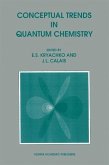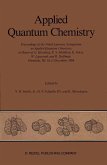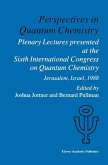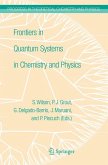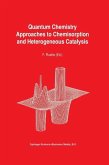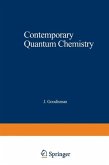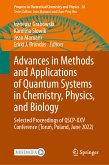Fundamental World of Quantum Chemistry: Volumes I, II and III form a collection of papers dedicated to the memory of Per-Olov Löwdin. These volumes are of interest to a broad audience of quantum, theoretical, physical, biological, and computational chemists; atomic, molecular, and condensed matter physicists; biophysicists; mathematicians working in many-body theory; and historians and philosophers of natural science. The volumes will be accessible to all levels, from students, PhD students, and postdocs to their supervisors.
Dieser Download kann aus rechtlichen Gründen nur mit Rechnungsadresse in A, B, BG, CY, CZ, D, DK, EW, E, FIN, F, GR, HR, H, IRL, I, LT, L, LR, M, NL, PL, P, R, S, SLO, SK ausgeliefert werden.
He established the Uppsala Quantum Chemistry Group in 1955 and the Quantum Theory Project at the University of Florida in 1960. Under Löwdin's leadership, the Uppsala and Gainesville groups rose quickly to rank among the three or four most influential theoretical groups in the world.
Volume III is a worthy companion to the earlier volumes. The 28 contributions cover a broad range of topics, most of which make a direct connection with Löwdin's scientific contributions.
This volume, like the earlier two, provides a unique anecdotal record of the development of quantum chemistry and insight about one of its most engaging advocates. It is also a testament to the breadth and current status of the discipline, and a harbinger of some important problems that await the attention of future generations of researchers.
For example, at the WATOC Congress in Toronto in 1990, Löwdin declared that "One of the most urgent problems of modern quantum chemistry is to treat the motions of the atomic nuclei and the electrons on a more or less equivalent basis.
Russell J. Boyd, Dalhousie University. In: 14526 J. AM. CHEM. SOC. Vol. 127, No. 41, 2005



